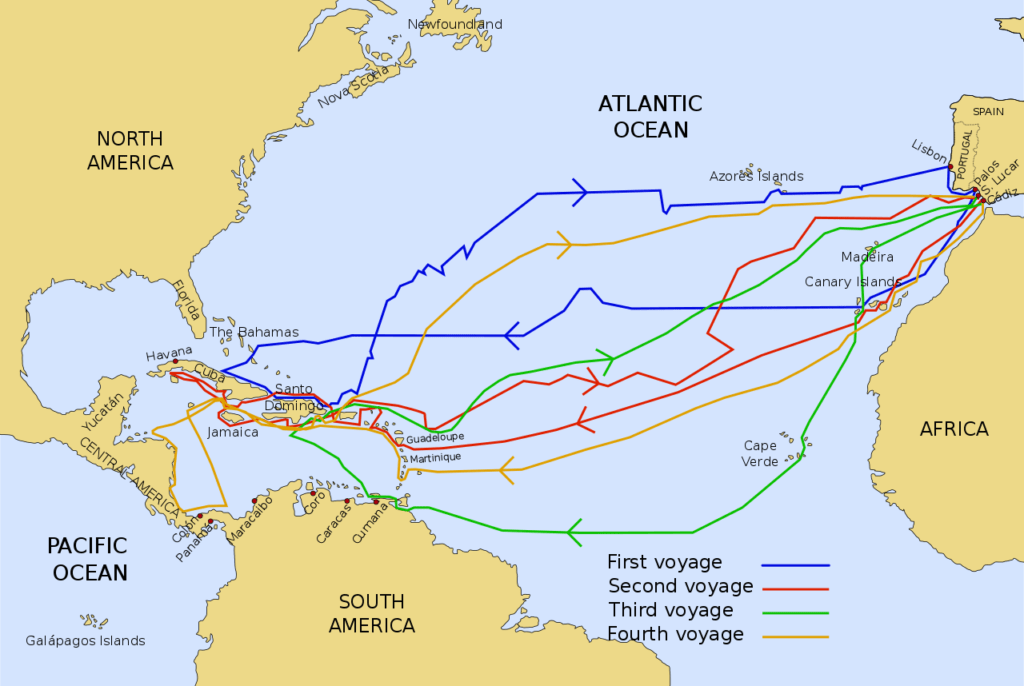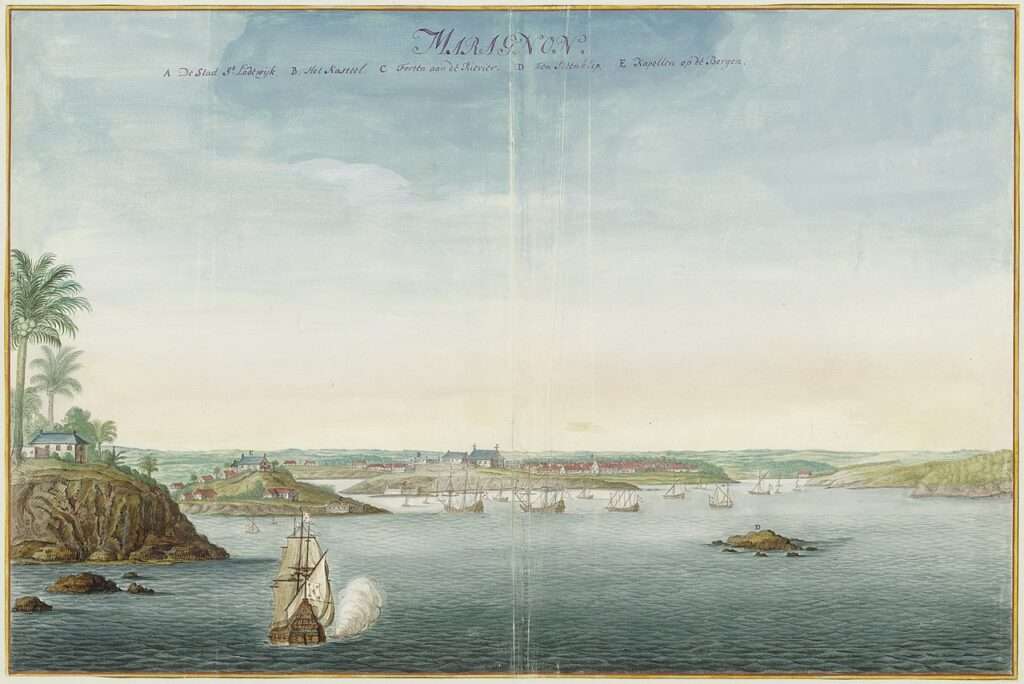Sea discoveries and voyages have played a significant role in shaping human history.

From the earliest seafaring civilisations of the Mediterranean to the Age of Exploration and beyond, humans have been driven to explore the vast and unknown expanses of the oceans.
These voyages of discovery and adventure have brought us new lands, cultures, and knowledge, transforming our understanding of the world and ourselves.
Here we will explore some of the most important sea discoveries and voyages throughout history.
Ancient Seafaring and the Mediterranean
The Mediterranean Sea was the birthplace of some of the earliest seafaring civilisations in human history, such as the Phoenicians and Greeks.
These ancient mariners travelled extensively throughout the Mediterranean and beyond, establishing trade networks and colonies as they went.
Phoenician Voyages (c. 1200-800 BCE) The Phoenicians, who inhabited modern-day Lebanon, were among the earliest and most skilled seafarers of the ancient world.
They built large trading ships known as biremes, which had two banks of oars and were capable of traveling long distances.
 A model of a Greek trireme. These ships would sail across the Mediterranean and explore new lands.
A model of a Greek trireme. These ships would sail across the Mediterranean and explore new lands.
Greek Exploration (c. 750-500 BCE) The Greeks were also skilled seafarers, and their voyages of exploration helped to establish their dominance in the Mediterranean world.
The Greek explorer Pytheas of Massilia, for example, sailed to Britain and the Arctic Circle in the 4th century BCE, becoming the first known European to do so.
The Greeks also established colonies in the Black Sea and along the coasts of modern-day Turkey and Italy.
The Age of Exploration
The Age of Exploration, which lasted from the 15th to the 17th centuries, was a period of intense seafaring activity as European powers sought new trade routes, resources, and territories.
The voyages of discovery during this time had a profound impact on world history, as they led to the colonisation of the Americas, the establishment of global trade networks, and the spread of European influence around the world.
Spanish Voyages of Discover (1492-1602)
The Spanish were the dominant sea power during much of the Age of Exploration, and their voyages of discovery had a profound impact on world history.
In 1492, Christopher Columbus sailed west across the Atlantic in search of a new trade route to Asia, but instead, he landed in the Caribbean, beginning the colonisation of the Americas.
 A map of the voyages of Christopher Columbus. A man well before his time.
A map of the voyages of Christopher Columbus. A man well before his time.
Spanish explorers also charted new trade routes in the Pacific, including the Philippines, and established colonies throughout South and Central America.
The Spanish explorer Juan Sebastián Elcano completed Magellan’s circumnavigation of the world in 1522, becoming the first person to sail around the globe.
Portuguese Exploration (c. 1415-1522)
The Portuguese were among the first European powers to embark on voyages of exploration during the Age of Exploration.
Under the leadership of Prince Henry the Navigator, Portuguese sailors charted new trade routes along the coasts of Africa and eventually reached India and the East Indies.
The Portuguese explorer Ferdinand Magellan also led the first circumnavigation of the world, although he died before the journey was completed.
Dutch Voyages of Exploration (c. 1595-1648)
The Dutch, like the Portuguese and Spanish, were eager to establish their own trade routes and colonies during the Age of Exploration.
They sailed to the East Indies in search of valuable spices and established a trading post in modern-day Indonesia. Dutch ships in harbour in São Luís, Maranhão in what was known as Dutch Brazil
Dutch ships in harbour in São Luís, Maranhão in what was known as Dutch Brazil
Dutch explorers also charted new trade routes to the Americas, Africa, and Australia, and established colonies in these regions as well.
British Exploration (c. 1600-1770)
The British also played a significant role in the Age of Exploration, although their voyages were primarily focused on trade and commerce rather than colonisation.
British traders sailed to India and China in search of valuable goods such as silk and tea, establishing trading posts in these regions.
British explorers also charted new trade routes to Africa and the Americas, and established colonies in North America, including the 13 colonies that would eventually become the United States.
Scientific Expeditions and Polar Exploration
During the 18th and 19th centuries, a new wave of sea voyages focused on scientific discovery and exploration of the polar regions.
These voyages were driven by a desire to understand the natural world and to push the limits of human knowledge and endurance.
Captain Cook’s Voyages (c. 1768-1780)
Captain James Cook, a British explorer, led three voyages of discovery to the Pacific in the late 18th century.
He charted the coasts of Australia and New Zealand and explored the islands of the Pacific, including Hawaii.
 Portrait of Captain James Cook in 1775. Cook was to pioneer sea explorations.
Portrait of Captain James Cook in 1775. Cook was to pioneer sea explorations.
Cook’s voyages were primarily focused on scientific exploration, and his crews made important discoveries about the natural world, including the transit of Venus across the Sun and the discovery of new plant and animal species.
Polar Exploration (c. 1800-1920)
In the 19th and early 20th centuries, explorers focused their attention on the polar regions, driven by a desire to be the first to reach the North and South Poles.
British explorers, such as Sir John Franklin and Sir Ernest Shackleton, led expeditions to the Arctic and Antarctic, enduring extreme conditions and facing significant challenges.
These voyages led to important discoveries about the geography and geology of the polar regions, as well as the natural world that resided there.
Modern Voyages of Discovery
In the modern era, sea voyages have continued to play an important role in shaping human history, from oceanic exploration to space travel.
Oceanic Exploration (c. 1950-present)
In the latter half of the 20th century, advances in technology and oceanography led to new voyages of discovery in the oceans.
Submarines and underwater vehicles were developed, allowing scientists to explore the depths of the ocean and discover new species and geological formations.
Oceanographic research vessels also began to explore the ocean in greater detail, contributing to our understanding of the world’s oceans and their role in the global climate. The explorations continue but what will be discovered next?